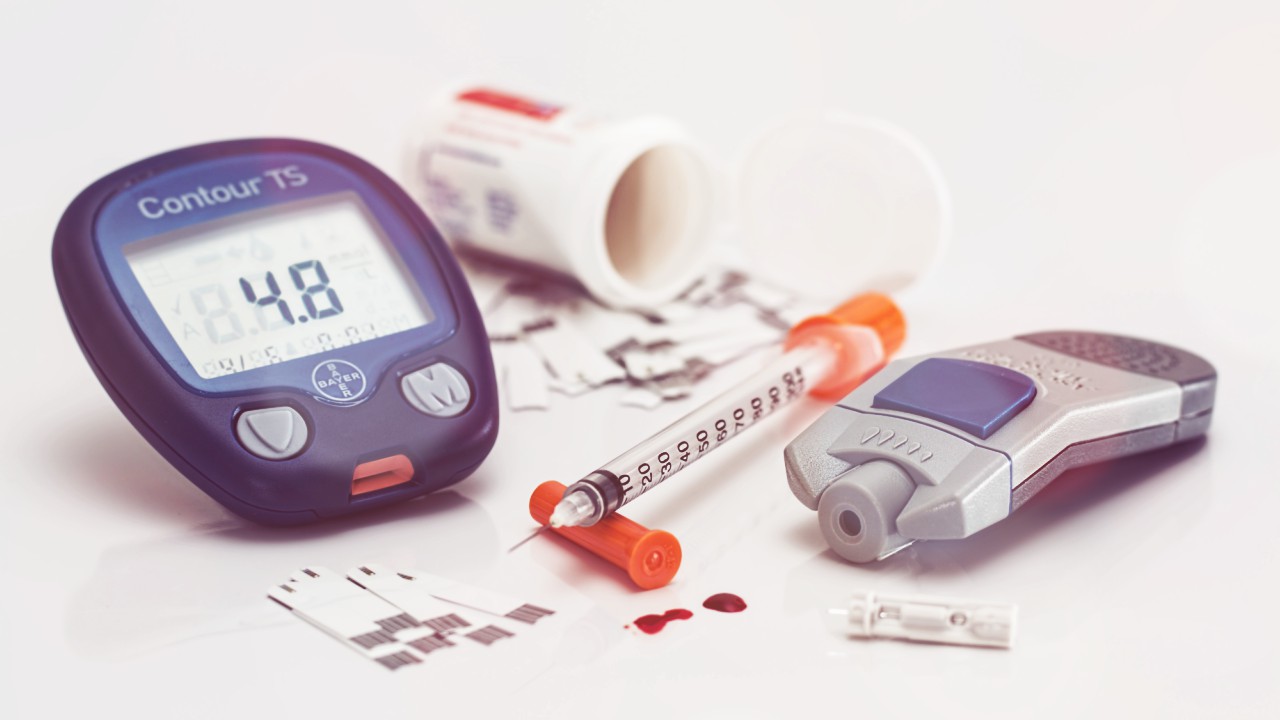 Photo: Getty Images
Photo: Getty Images
Up until I started researching about common gastrointestinal problems I didn't even know some conditions existed. Well, I learned yet another complication that we diabetics have to be aware of. So far, knock on wood, I haven't had my GI attacks in awhile. I am thankful each day for not having to deal with bloating, vomiting, lumps in the throat, etc.
Gastroparesis is one such condition I learned about this week while doing research. It is defined as, "a condition in which the normal rate at which the stomach empties food into duodenum is slowed as a result of autonomic neuropathy effecting the stomach."
In other words, patients who have gastroparesis develop delayed stomach emptying. After a meal the food stays in the stomach without being digested. This is due to the damage to the vagus nerves which regulate the digestive system.
These nerves make the muscles help function in digesting food in the stomach. The damage to the vagus nerves leads to the entire gastrointestinal tract, from the mouth to the anal spincter, unresponsive, especially the stomach muscles.
Some of the causes for this condition include use of anti-depressants, high blood pressure drugs, diabetic drugs, fatty food, high blood sugar, longevity of diabetic condition, viral infections, abdominal surgeries, narcotics, deposits of protein fibers in tissues and organs (amyloidosis) and scleroderma, a connective tissue disorder affecting skin, blood vessels, skeletal muscles and internal organs.(WebMD.com).
Symptoms of gastroparesis include: peptic ulcers, diarrhea, heartburn, vomiting, poor control of blood sugar, bloating or feeling full, poor appetite and weight loss.
Complications of gastroparesis:
1. Food stays in the stomach for a long time leading to bacterial growth.
2. Food can harden into lumps called "bezoar" causing blockages in the stomach keeping it from moving into the small intestine.
3. Vomiting and nausea.
4. Dumping syndrome caused by eating high sugar and fatty foods cause lightheadedness, rapid heart beat, cramping, sweating, fatigue. (American College of Gastroenterology)
Preventative methods include:
1. Change in the timings of food intake and variety of foods.
2. Eat six small meals a day so digestion becomes easy instead of three large meals a day.
3. Less intake of food will not make the stomach feel full, thus avoiding fullness or bloating.
4. Small amounts of food makes the stomach emptying easier.
5. Liquid foods and low fiber foods such as applesauce, and juices make digestion easy.
6. Avoid foods high in fat that could slow down the digestion process.
Medicines such as Reglan, Erythromycin, Dramamine, Compazine, and Zofran, among others, are recommended for different conditions that are caused by gastroparesis.(WebMD.com)
Regular visits to the doctor's office, checking blood sugar levels, eating right, exercising every day at least for half hour while being in the best spirits as we could help in controlling different functions of the body and mind keeping us healthy and happy because, OUR LIFE MATTERS.





Add a Comment1 Comments
One of the many symptoms of amyloidosis is diarrhea and sudden loss of weight. The others are:
SHORTNESS OF BREATH
FATIGUE
ENLARGED TONGUE(MACROGLOSSIA)
PURPUREA (BRUiSING AROUND EYES)
CARPAL TUNNEL SYNDROME
FOAMY FROTHY URINE
DIFFICULTY SWALLOWING
NONPRODUCTIVE COUGH
SUDDEN LOSS OF WEIGHT
TINGLING OR NUMBNESS HANDS OR FEET
EDEMA (ANKLE AND FEET SWELLING)
DIARRHEA
DIZZINESS UPON STANDING
WEAKNESS
IRREGULAR HEART BEAT
HIGH CHOLESTEROL
LOWER BACK ACHE
FALLING DUE TO LOW BLOOD PRESSURE
FALLING ASLEEP AT THE WHEEL
CHANGES IN NAILS OR HAIR
CHANGES IN SKIN
EASY BRUISING
ELEVATED ALKALINE PHOS.LEVELS IN BLOOD
Muriel Finkel
AMYLOIDOSIS SUPPORT GROUPS
ASG www.amyloidosissupport.com
Toll Free 866-404-7539
National Organization Member of NORD
www.rarediseases.org
www.amyloidosisonline.com - Over 1000 have joined
www.popsrun.org
"Recycle Yourself, Be an Organ Donor"
May 6, 2011 - 2:03pmThis Comment